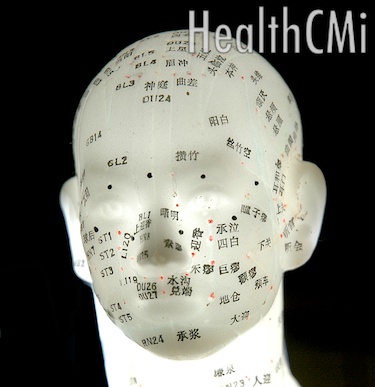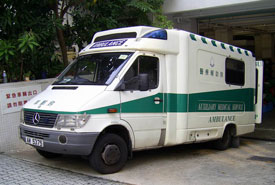New research finds acupuncture effective for regenerating brain tissue and restoring motor and cognitive function after a severe head trauma. An investigative team at the Rehabilitation Department of the First Affiliated Hospital of Xian Jiaotong University (Shaanxi) compared acupuncture combined with standard care with a control group receiving only standard medical interventions. The addition of acupuncture therapy to the conventional regime of care significantly reduced complications and improved the survival rate. The acupuncture group significantly outperformed the control group in all scales and indices.  Notably, the acupuncture group demonstrated superior clinical outcomes including better mobility, cognitive function and improved functions of daily activities and living.
Notably, the acupuncture group demonstrated superior clinical outcomes including better mobility, cognitive function and improved functions of daily activities and living.
Severe head traumas cause diffuse axonal injury (DAI) in approximately half of all cases. This investigation focused on patients having had severe head traumas causing DAI. This type of injury is different than a blow to one area of the brain. It occurs throughout a wider area and is caused by the brain moving in the skull. This type of shaking of the brain occurs in sports injuries, automobile accidents, falls and shaken baby syndrome. The latter is a form of child abuse. As a result of the trauma, inflammation and damage to the brain ensues and many patients slip into a coma and do not revive.
This study compared 60 diffuse axonal injury patients that were divided into two groups. The control group received standard biomedical interventions including hydration & bleeding controls, anti-inflammatory medications, resuscitation and hyperbaric oxygen therapy. Other treatments provided to the control group were standard protocols for the treatment of respiratory and urinary disorders including infections and the treatment of ulcers. The acupuncture group received standard biomedical care plus acupuncture. The Traditional Chinese Medicine (TCM) principles of treatment included tonifying the kidneys, unblocking the yang and regulating qi. The researchers note that the success of the acupuncture therapy improved significantly when applied early as an intervention measure. In addition, acupuncture performed especially well for patients for resuscitation and in the recovery phase.
The researchers applied acupuncture to the Chong, Ren and Du acupuncture channels as the primary areas. Long courses of treatment were required and individual indications were treated on a case by case basis. Treatments focused on resuscitation, restoring movement after paralysis, relieving muscle tension, improving language skills, regulating salivation, relieving urinary and fecal incontinence, promoting eating, etc….
The researchers compared the data between the acupuncture and control groups 24 hours before the treatment began and upon the completion of six courses of care. There was no significant difference in Fugl-Meyer Assessment, LOTCA Assessment, and Barthel Index prior to treatments.  After six courses of treatment, the control group showed some improvements according to above scales. Patients in the acupuncture group significantly outperformed those in the control group in all scales and indices mentioned above. Based on the clinical outcome, the researchers conclude that acupuncture combined with rehabilitation can significantly improve DAI patients’ mobility, cognitive competence and other functions in everyday life.
After six courses of treatment, the control group showed some improvements according to above scales. Patients in the acupuncture group significantly outperformed those in the control group in all scales and indices mentioned above. Based on the clinical outcome, the researchers conclude that acupuncture combined with rehabilitation can significantly improve DAI patients’ mobility, cognitive competence and other functions in everyday life.
Prior research was the impetus for this investigation. Other studies demonstrated the ability of acupuncture to regulate cerebral blood flow and cell apoptosis, improve electrophysiological brain activity, improve cognitive function and protect tissues from free radical damage. Prior research demonstrated that acupuncture helped reduce edema of the brain (cephaledema) and promoted expression of GAP43 and PCNA in the brain. Also, acupuncture was shown to reduce infarct sizes due to cerebral ischemia. This and other clinical and basic research prompted the investigators to conduct this study. The findings demonstrate that a rigorous regime of acupuncture care is appropriate for patients with DAI and that the intervention should start in the early stages of illness to achieve the best possible clinical outcome.
Reference:
Deng, Jingyuan, Xiaodong Sheng, Zhonghua Wang, et al. “Efficacy of acupuncture combined with comprehensive rehabilitation on cerebral diffuse axonal injury.” Chinese Journal of Gerontology 33.20 (2013): 4972-4973.


